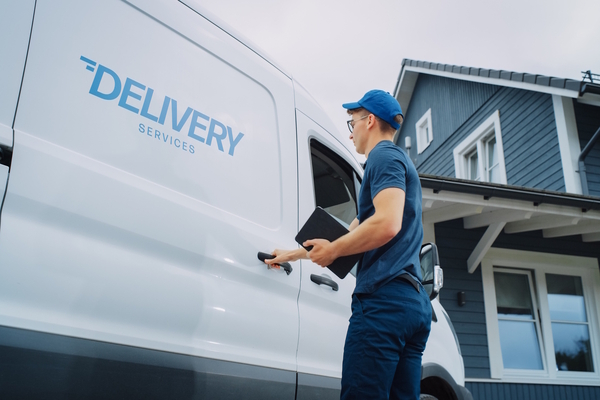Navigating the Direct-to-Consumer revolution

Will Lovatt at Deposco Europe describes a new era of fulfilment innovation and customer connection
The landscape of commerce is undergoing a significant transformation, propelled by the rapid growth of Direct-to-Consumer (DTC) models. This shift is not merely a trend but a profound change in how businesses interact with their customers, manage their supply chains, and leverage technology to meet evolving market demands.
DTC fundamentally alters the dynamics between businesses and consumers. It provides a framework for more personalised, efficient, and responsive commerce, driven by direct engagement and a focus on innovation. This change not only reflects the evolving expectations of today’s consumers but also sets a new standard for how businesses operate in the digital age.
Recent research from Deposco, polling the views of ecommerce and supply chain decision-makers across the UK and Ireland, Benelux and the Nordics regions, highlights the critical role of technology and skilled personnel in adapting to this change, especially in Europe, where the DTC model has seen remarkable growth.
The infusion of new technology systems, such as Warehouse Management Systems (WMS) and Order Management Systems (OMS), is now seen as a necessity for over 44% of commerce and supply chain leaders in Europe.
It’s imperative for DTC providers to have robust fulfilment infrastructure to manage the ongoing growth in DTC efficiently and scale in line with it over time. But they also need solutions that are flexible enough to handle what continues to be a dynamic market, both in terms of what customers are doing and in terms of supply.
This need for technological advancement is a direct response to the burgeoning DTC market. Importantly though, the use of agile fulfilment technology could alleviate the need for these businesses to increase stock holding to mitigate supply chain risks. For more than a third of respondents (34%), for example, holding more stock in hand is seen as a main way for their business to protect itself from failing to fulfil customer expectations.
The deployment of these systems is not just about reducing excess inventory, it is also about enhancing efficiency, reducing errors, and ultimately, delivering a superior customer experience.
The human element
Equally telling is the fact that nearly 48% of respondents say their businesses have had to recruit more technically-skilled staff to fulfil DTC orders over the past 12 months. This necessity underscores the growing complexity of DTC fulfilment operations and the critical role of human expertise in navigating this complexity.
It also reflects the broader industry acknowledgement that while technology such as automation is a powerful enabler, its potential is fully realised, in a complex DTC operation, only when complemented by skilled personnel.
Customer connection: the core of DTC success
At the heart of the DTC model is a desire for a direct and meaningful connection with customers. According to Deposco’s findings, 42% of respondents say the businesses they are working for are prioritising DTC to build strong relationships with their customers.
This approach is not only about improving customer satisfaction but also about gathering valuable data on consumer behaviour, preferences, and spending patterns.
The strategic shift towards DTC has also enabled businesses to offer more flexible fulfilment options. Services like ‘click & collect’, and the ability to combine or split orders to fulfil customer demand from multiple locations, are now more common. These services not only enhance customer convenience but also reflect a commitment to sustainability and efficiency.
Sustainable practices in fulfilment are key to the success of DTC. The consolidation of orders and leveraging multiple inventory points are practices that not only meet customer expectations for convenience and sustainability but also reduce operational costs and environmental impact.
The drive towards DTC is not a temporary response to recent disruptions but a strategic reorientation towards customer centricity, technological innovation, and operational agility. The increasing reliance on technology and skilled personnel to manage DTC operations is a testament to the sector’s dynamic nature.
Businesses are now recognising the importance of understanding and directly engaging with their customers. This direct engagement allows for personalised experiences, fostering a sense of trust and loyalty that is hard to achieve through traditional retail channels.
Technology to the fore
The rise of DTC is a clear indicator of where the future of commerce lies. It’s a future that demands a blend of technological sophistication and human expertise. Businesses that embrace this new model, investing in the right technologies and people, will not only survive but thrive in this evolving landscape.
For organisations looking to navigate the complexities of DTC and harness its full potential, the message is clear: the integration of advanced fulfilment technology and skilled personnel is not just beneficial but essential.
As we move forward, the synergy of technology, talent, and customer-centric strategies will define the winners in the DTC space.
Will Lovatt is General Manager and Vice President at Deposco Europe
Main image courtesy of iStockPhoto.com and PeopleImages

Business Reporter Team
Most Viewed
23-29 Hendon Lane, London, N3 1RT
23-29 Hendon Lane, London, N3 1RT
020 8349 4363
© 2024, Lyonsdown Limited. Business Reporter® is a registered trademark of Lyonsdown Ltd. VAT registration number: 830519543
Join the Business Reporter community today and get access to all our newsletters, and our full library of talk show episodes
Join the Business Reporter community today and get access to all our newsletters, and our full library of talk show episodes





